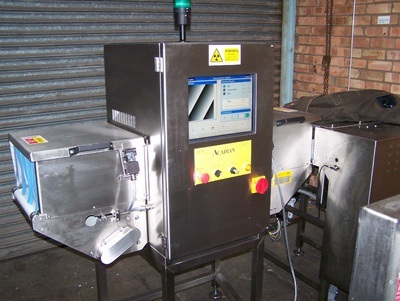Do I need local rules?
Published: Sep 29, 2021
Source: Ionactive Radiation Protection Resource
We see this question a lot – the answer to this is also closely related to ‘Do I need an RPS’.
The requirements for local rules are specified in Regulation 18 and Regulation 19 of the Ionising Radiations Regulations 2017 (IRR17). Strictly speaking, if you have a Controlled Area or Supervised Area (these terms being explained in Regulation 17), then you need Local Rules. Regulation 18 allows a degree of flexibility with regards Supervised Areas (‘..where appropriate having regard for the nature of the work carried out..’). However, our advice is wherever you have a Controlled or Supervised Area you have local rules.
I do not have a designated area (or do I....)
So, the question then arises... but what do I do if I do not have a designated area? Do I still need local rules?

Firstly, let us provide some examples of ionising radiation use where you might assume to find areas that are unlikely to be designated. Examples would include: use of a small x-ray baggage scanner in an airport public area, use of an x-ray machine for quality control checks in the food industry, use of a simple level gauge containing a radioactive source (designation of area around gauge could be required in some circumstances), use of shielded bench top XRF equipment, use of shielded x-ray inspection equipment in the electronics industry etc.
Current guidance (proved by recent enforcement action from the regulator - HSE), is that all the above areas noted should be designated as controlled areas, despite the fact they are not areas designed to be worked in.
In the case of the above mentioned x-ray cabinet systems, whilst the area they are used in will not be designated, it is likely that the area inside will be designated as controlled. Generally where an area cannot be worked in or entered then it could be argued that no controlled area exists. However, recent HSE visits in the food sector have shown that they still expect even the smallest cabinets to be controlled (internally) due to the special procedures employed during handover and hand back of the area (unit) to a service engineer. This is to ensure that safety systems and shielding are in place such that no controlled area would exist outside the confines of the x-ray unit.
So, do we need local rules if an area that does not need to be controlled? Under IRR17 the strict answer is ‘No’. Furthermore, if you do not need local rules you do not need a RPS. Is that the final answer? NO!
Firstly, you need to consider the Management of Health and Safety at Work Regulations 1999. They require that you have Health and Safety Arrangements and Health and Safety Assistance. Effectively, your Safety Arrangements are your Local Rules and your Assistance is the RPS.
The bottom Line
Our advice is that regardless of your area designation, you should have local rules where ever you have a source of ionising radiation. Clearly, for those most simple sources or where you do not have a designated area, the local rules will be very simple and may not (or cannot) contain all the usual mandatory information (e.g. dose investigation level). This will ensure that you are meeting best practice, and complying with all the requirements of IRR17. As RPA we expected to see this at all our clients, and we also believe the HSE would expect to see this too.
Final Thought
Where local rules are not strictly required under IRR17, and in the case where you are using radioactive materials, you still need to consider record keeping, security of the source and all the other matters required under environmental legislation). Whilst many of these are not subject to IRR17 consideration, the use of local rules in non designated area situations still makes sense to ensure you are meeting your obligations under ALL relevant legislation.
